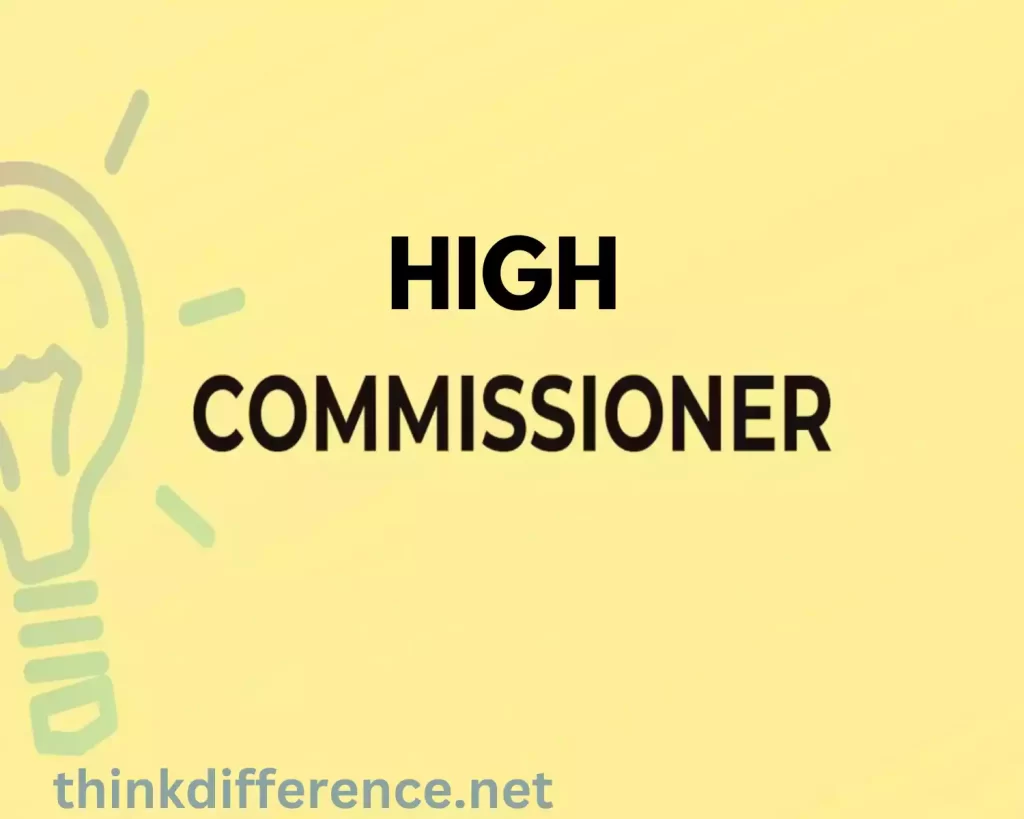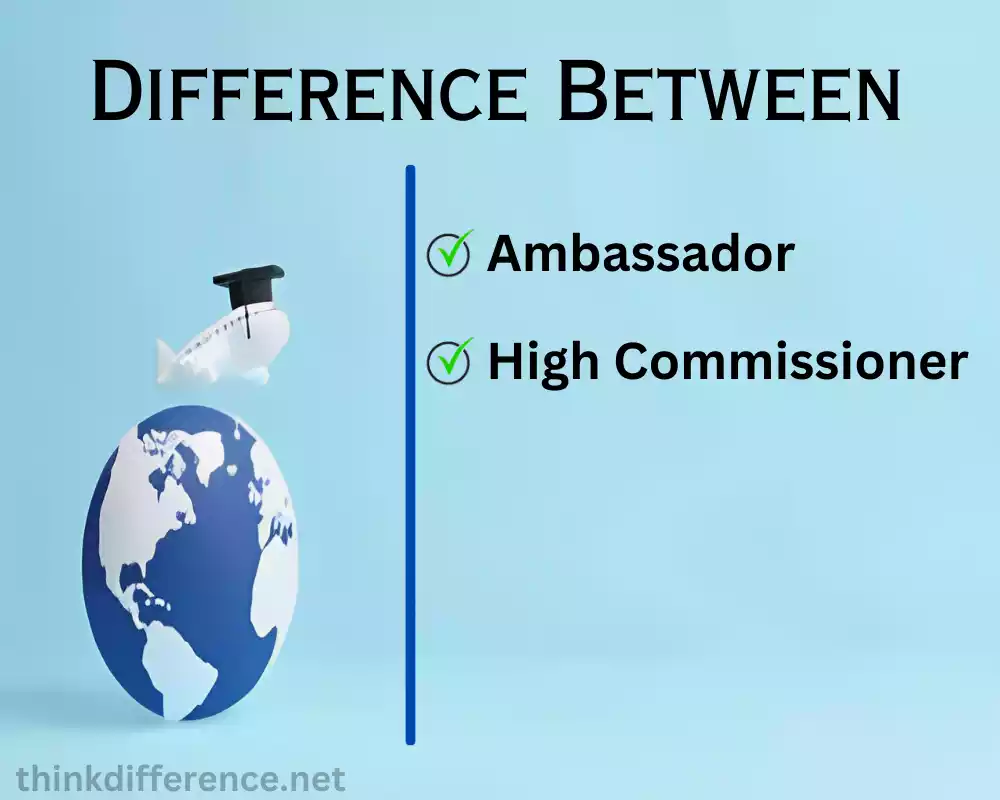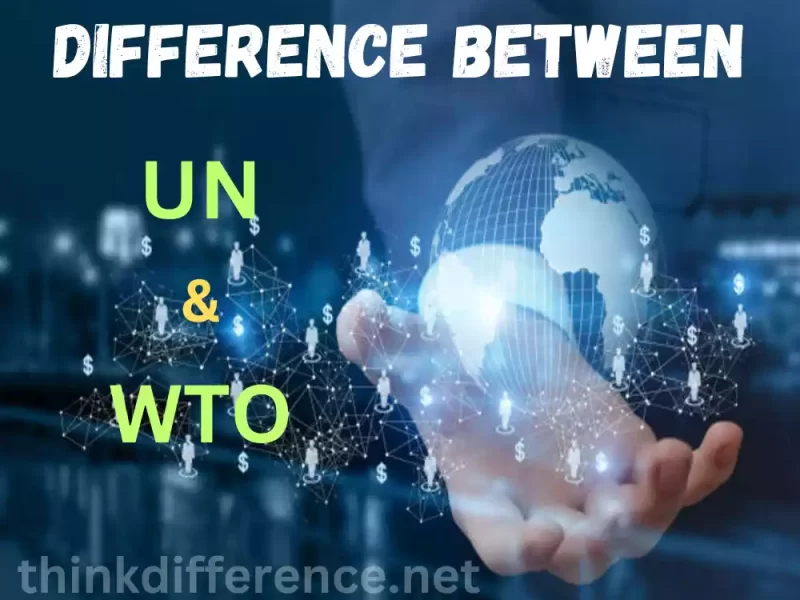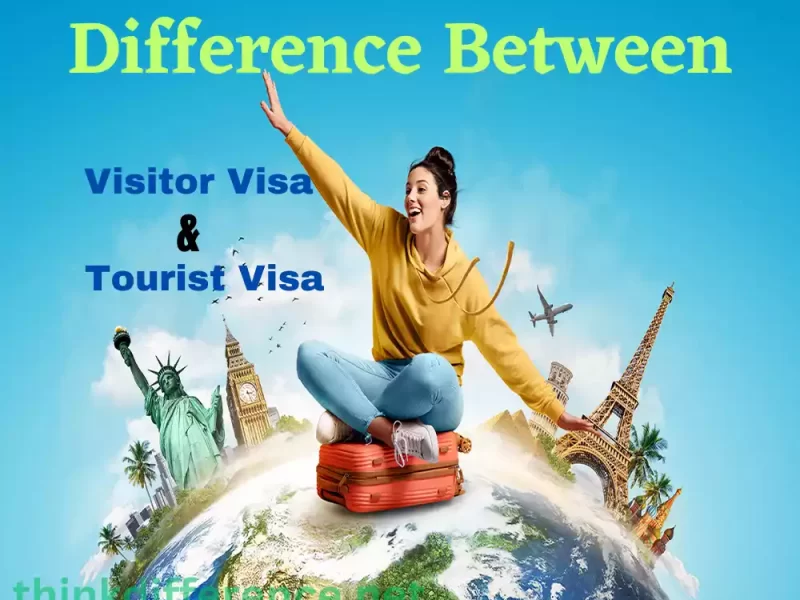An Overview of Ambassador and High Commissioner
High Commissioners and ambassadors from India’s Foreign Services officers who represent their nation officially as representatives are some of the world’s most influential figures. Diplomats play an integral part in maintaining and strengthening relations among nations around the globe.
We will explore the distinctions between High Commissioners and Ambassadors as well as their respective roles and responsibilities, along with any impact these positions might have on international relationships.
This blog is for anyone curious about diplomacy – be they Civil Services candidates, International Relations students, career diplomats or simply curious onlookers.
Who is an Ambassador?
An ambassador is appointed by a sovereign nation to represent their interests and promote diplomatic ties between that country and another, typically acting as the main link between home government and their host nation or organization. They are charged with maintaining diplomatic ties, conducting negotiations and furthering national interests.

Ambassadors are selected based on their qualifications, experience and expertise in diplomacy and foreign relations. Typically appointed by their nation’s government or head of state, before becoming accredited as official representatives. Once accredited they become recognized as representatives for their home country in the host nation.
Ambassadors serve a range of duties, from representing their country abroad and advancing national interests, to engaging in diplomatic negotiations and encouraging cultural and economic cooperation – not to mention reporting back to their government about political and economic events that occur abroad. Ambassadors also play an essential role in strengthening bilateral relationships, addressing international issues and encouraging collaboration in mutually beneficial areas.
Ambassadors enjoy diplomatic immunity as well as specific taxation and customs privileges, which they abide by during their work to promote effective diplomacy between nations and foster understanding among them. Their focus should always be to increase understanding among them through diplomacy.
Qualifications Of An Ambassador
Qualifications for becoming an ambassador depend on factors like country of residence and specific responsibilities involved, in general candidates must possess:
- An academic background that includes international relations or diplomacy.
- Experience in foreign service or related field for several years.
- Excellent communication and negotiation skills
- Understanding the culture and traditions of your host country are of utmost importance,
- While building leadership and management skills is equally as necessary.
- Fluency in at least one foreign language
Responsibilities And Duties Of An Ambassador
Ambassador is an extensive position that encompasses numerous duties:
- Promotion of bilateral relations and representation in their host nation.
- Signing and Negotiating Treaties and Agreements on their country’s behalf.
- Advise their government about political, economic and social developments occurring within host country.
- Assist and protect their citizens in the host nation while encouraging trade and investments between their country and host country.
- Establish cultural and educational ties between their home country and that of the host country.
- Representing at international conferences or organizations.
Who is a High Commissioner?
A high commissioner is an official appointed to represent one or more Commonwealth countries and maintain diplomatic ties among them. A high commissioner acts like an ambassador but more directly represents their country within the Commonwealth.
Selection criteria for high commissioners vary based on qualifications, expertise and experience in diplomacy, international relations or related areas. They are usually appointed by their country’s government or head of state after consultation with either foreign affairs or international relations ministry.

High commissioners play an essential diplomatic role within the Commonwealth – an association of nations united by historical connections and shared values – representing their country in this international organization. They serve as official representatives and envoys.
High commissioners play an essential role in promoting collaboration among Commonwealth members, facilitating dialogue, understanding, and advocating for their country within the Commonwealth framework. High commissioners also participate in diplomatic activities and attend Commonwealth events and meetings while participating in discussions regarding education, human rights, development and trade as important matters of mutual concern.
High commissioners provide assistance and support to citizens from their home countries who reside or travel within another Commonwealth member nation, offering consular services such as passport and visa support.
High commissioners enjoy many of the same diplomatic privileges enjoyed by ambassadors, such as diplomatic immunity, taxation, customs and legal jurisdiction privileges. These benefits were granted to high commissioners to enhance their diplomatic function and ensure effective representation among Commonwealth communities.
High commissioners are diplomats appointed by Commonwealth countries to represent their interests and maintain diplomatic ties between Commonwealth members. As official representatives within the Commonwealth, high commissioners foster collaboration, understanding, and cooperation among members.
Qualification Of A High Commissioner
- Qualifications for becoming a high commissioner vary based on country and position; but generally speaking candidates must possess:
- Hold an educational background relevant to international relations or diplomacy.
- Experience in foreign service or related field for several years.
- Negotiation skills.
- Understanding the culture and traditions of your host country are vital.
- Leaders and managers To succeed at any task efficiently. Those involved should possess adequate management and leadership abilities.
Responsibilities And Duties Of A High Commissioner
An area High Commissioner may be expected to fulfill is:
- Representing their home countries’ interests while strengthening bilateral ties between both nations
- Signing and Negotiating Treaties and Agreements on Behalf of Their Nation Protecting Citizens in Host Nations.
- Promoting trade and investments between their country and host country.
- By maintaining and strengthening cultural ties between both.
Comparison table of Ambassador and High Commissioner
| Aspect | Ambassador | High Commissioner |
|---|---|---|
| Appointment | Represents country worldwide | Represents country in the Commonwealth |
| Status | High-ranking diplomatic official | Commonwealth ambassadors have the same rank as ambassadors |
| Jurisdiction | Specific Country or Region | Commonwealth Member Country Assigned |
| Geographic Scope | Global | Commonwealth Community |
| Protocol and Priority | Priority in diplomatic protocol | Priority is lower than ambassadors |
| Bilateral Relations | Focus on bilateral relations | Focus on Commonwealth relations |
| International Organizations | Represents country at international organizations | Engagements are primarily in Commonwealth |
| Responsibilities | Promoting national interests, conducting negotiations, and fostering diplomatic relations | Promotes dialogue and understanding, facilitates cooperation within Commonwealth |
| Consular Services | Consular services are provided to citizens | Consular services are provided to citizens |
| Reporting and Analysis | Monitors and reports of political, economic and social developments | Gives insight and recommendations to the home government |
| Cultural and Educational Exchanges | Promoting cultural and educational exchanges | Supports the exchange of goods and services within Commonwealth |
| Diplomatic Immunity | Benefits from diplomatic immunity and privileges | Benefits from diplomatic immunity and privileges |
Examples and Case Studies
Ambassadors:
- U.S. Ambassador’s Role in Negotiating Trade Deals: As an excellent example, consider the U.S. Ambassador to the UN who plays an instrumental role in furthering U.S. commercial interests by brokering favorable trade agreements and advocating them with other nations. They engage in diplomatic discussions and address trade barriers directly.
- Art exhibitions can be an excellent way for a French Ambassador to foster cultural exchange and appreciation between France and its host country. By staging art exhibits showcasing French heritage and artists, an ambassador may facilitate cultural exchange between France and its host nation.
High Commissioners:
- High commissioners from Commonwealth countries collaborate in order to address global challenges like climate changes. By attending Commonwealth forums and working on joint strategies together, sharing best practices, and encouraging coordinated actions designed to limit climate changes while simultaneously supporting sustainable economic development, their high commissioners aim to meet global issues head-on and reduce impacts from them in ways that support sustainable development and mitigate further climate changes.
- Support Provided by Canadian High Commissioners Abroad for Canadian Citizens Abroad: High commissioners play an invaluable role in providing support and assistance for citizens living or traveling within other Commonwealth member countries, like a Canadian high commissioner may do when serving Canadian residents abroad. A Canadian high commissioner may provide emergency aid, facilitate travel documents or offer consular services such as providing consular advice as necessary, as well as consular services which help Canadian citizens facing distress abroad.
These examples demonstrate how ambassadors and High Commissioners fulfill their roles and responsibilities within various contexts, such as trade negotiations, cultural promotions, international cooperation and citizen support. These examples demonstrate the value of diplomatic representation for furthering national interests while building international relationships and meeting shared challenges.
Conclusion
Ambassadors and High commissioners serve as the backbone of international diplomacy. Their efforts in promoting cooperation, understanding, and peace contribute to a more interconnected and harmonious world. As the landscape of international relations continues to evolve, these diplomatic envoys will play a vital role in shaping the future of global affairs.



